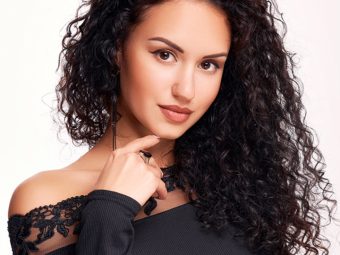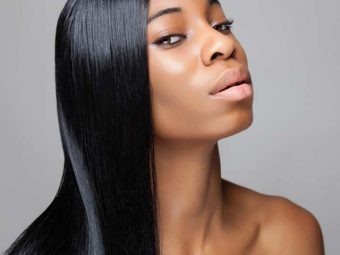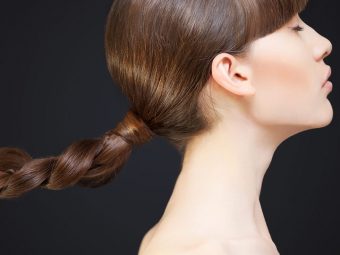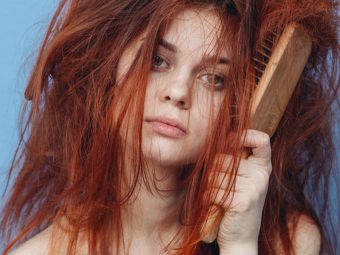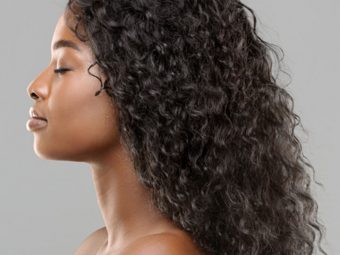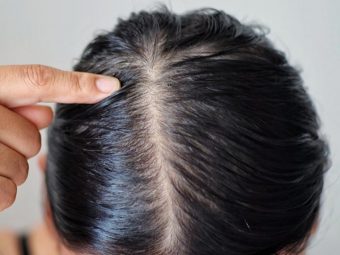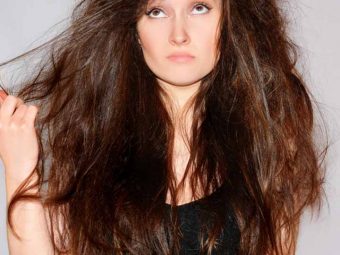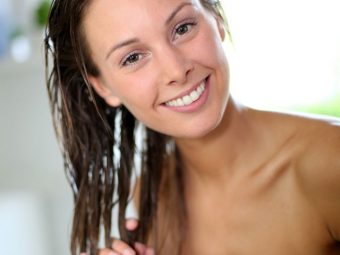Fenugreek Seeds For Hair: Benefits, How To Use, & Side Effects
Take advantage of this popular condiment to enhance your hair growth naturally.
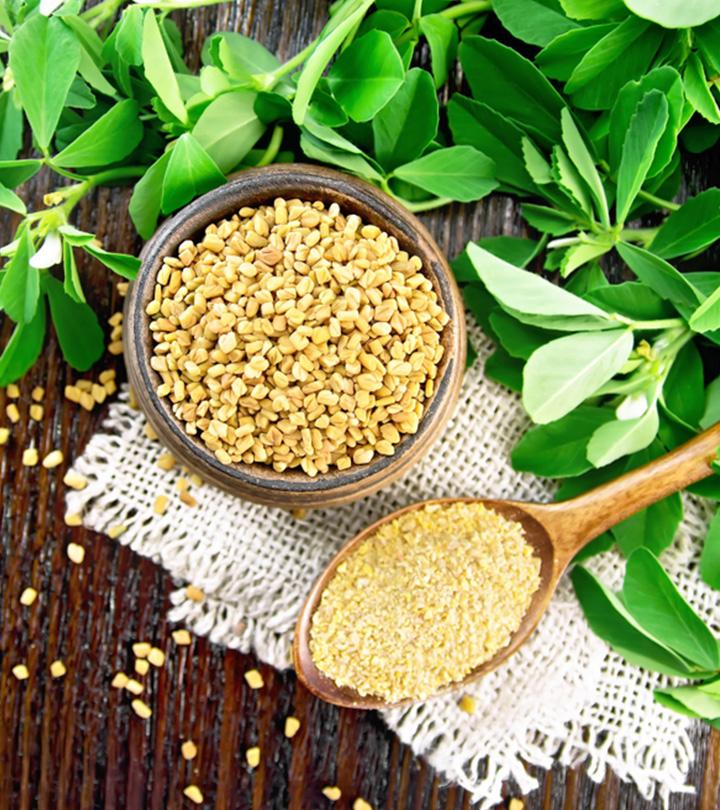
Using fenugreek seeds for hair issues is a classic home remedy. Many believe it to be an effective treatment for thinning hair and dandruff. However, do these traditional uses have any scientific merit? What is the best way to improve hair health using fenugreek? Fenugreek seeds can benefit your hair in various ways, and we are going to explore them in detail here. Check it out.
In This Article
What Is Fenugreek?
Fenugreek is a green herb found in southern parts of Asia and the Mediterranean. It is popular for its unique aroma and bitter flavor. Both its leaves and seeds are used for culinary and medical purposes.
Fenugreek seeds have been used for a long time and have various health benefits. They help improve digestion, soothe skin irritation, and even induce labor (1). They also could regulate cholesterol and blood sugar levels and even fight inflammation (2).
These seeds are rich in vitamins, phosphates, flavonoids, iron, and saponins. But how can they be beneficial for your hair?
How Are Fenugreek Seeds Good For Your Hair?
Fenugreek Seeds For Hair Growth
Fenugreek seeds are rich in iron and protein, which are essential for hair growth. They also contain flavonoids and saponins that possess anti-inflammatory and anti-fungal properties (3).
Direct research on the relation between fenugreek seeds and hair growth is limited. But some studies state the seeds may have a positive effect on hair growth.
In one study, 53 participants were given a daily oral dose of 300 mg of fenugreek seed extract for 6 months. Eighty percent of the participants observed an improvement in their hair growth (4).
In another animal study, topical application of an herbal oil mixture containing fenugreek seed extract helped increase hair growth. The study stated that the extract could be an alternative to minoxidil, a popular hair growth medication (5).
Although these studies show a positive effect of fenugreek seed on hair growth, more research is warranted in this regard.
Fenugreek Seeds For Scalp Health
Fenugreek is popular in treating conditions associated with dry or irritated skin. It is also known to treat dandruff that is caused by itchy, flaking scalp. An itchy scalp, in some cases, may lead to temporary hair loss as well.
Dandruff can also be caused due to excess oil production, fungal growth, and inflammation (6).
It is unclear if fenugreek seeds can treat all causes of dandruff. But some studies have found that these seeds possess anti-inflammatory, moisturizing, skin-soothing, and wound-healing properties (7), (3).
In a study done on 11 people over 6 weeks, a cream with fenugreek extract was found to reduce skin irritation and enhance skin moisture (8).
Some anecdotal evidence suggests that using extracts of fenugreek seeds may help boost scalp health. However, more research in this area is warranted.
You can use fenugreek seeds for hair growth in a couple of major ways. We have highlighted them below.
How To Use Fenugreek Seeds For Your Hair?
- Supplements
Fenugreek seeds as a supplement are readily available as a powder or a concentrated liquid extract. There is no concrete recommended oral dose established yet. Some believe 1200 mg of fenugreek seed powder or 300 mg of extract per day could be ideal. Consult with your doctor regarding the same.
Note: Consult your doctor if you plan to use a fenugreek supplement and are unsure about it.
- Topical Application
Topical use of fenugreek seeds can also help promote healthy hair growth. You may use a fenugreek seed mask for this purpose.
- Soak a few tablespoons of fenugreek seeds in water.
- Make a paste of the seeds and apply the paste to the scalp. Additionally, you can also mix coconut oil, yogurt, or honey with the paste.
- Leave the mask on for over 10 mins and rinse with warm water. Clean your hair with a gentle shampoo.
Fenugreek seeds may cause certain side effects. It is important to be aware of them before you start using the seeds.
Side Effects Of Fenugreek Seeds
- Fenugreek supplements are generally safe for most. However, if you are pregnant, avoid them before 37th week as they may induce premature labor. Avoid fenugreek if you are allergic to peanuts and chickpeas (9).
- Fenugreek seeds are also believed to cause neurodevelopmental, neurobehavioral, and neuropathological side effects. More research is needed in this area.
- Fenugreek seeds may also cause chronic asthma in susceptible individuals. Research is limited. Consult your doctor before use.
Fenugreek seeds have been used as a home remedy for ages. It helps treat several hair-related issues. Using fenugreek seeds for hair loss is considered one of the most effective ways to combat the issue. Fenugreek seeds’ anti-fungal and anti-inflammatory properties help manage dandruff issues, improve scalp health, promote hair growth, and treat dry skin conditions. You may incorporate fenugreek seeds or hair masks into your hair care routine or take supplements. Though fenugreek seeds are considered safe, consult your doctor if you experience any side effects.
Frequently Asked Questions
Can I use fenugreek on my hair every day?
Using fenugreek on your hair twice or thrice a week is sufficient. Excessive or over-frequent use of fenugreek may result in adverse effects.
Does fenugreek cause grey hair?
Fenugreek is used to promote hair health and growth and there is no evidence to suggest that fenugreek causes grey hair.
Can we apply fenugreek paste on oiled hair?
Yes, you can apply fenugreek paste on oiled hair to improve its efficacy and to prevent over-dryness of the scalp if you have dry hair.
Key Takeaways
- Fenugreek seeds are rich in iron and protein that are essential for hair growth.
- While direct research on the relation between fenugreek seeds and hair growth is limited, some studies state the seeds may positively impact hair growth.
- You can use fenugreek seeds for topical application in the form of masks or as dietary supplements.
Sources
Stylecraze has strict sourcing guidelines and relies on peer-reviewed studies, academic research institutions, and medical associations. We avoid using tertiary references. You can learn more about how we ensure our content is accurate and current by reading our editorial policy.
- Therapeutic applications of fenugreek
https://pubmed.ncbi.nlm.nih.gov/12611558/ - The potential of fenugreek (Trigonellafoenum-graecum) as a functional food and nutraceutical and its effects on glycemia and lipidemia
https://pubmed.ncbi.nlm.nih.gov/21861724/ - A small plant with big benefits: Fenugreek (Trigonellafoenum-graecum Linn.) for disease prevention and health promotion
https://pubmed.ncbi.nlm.nih.gov/28266134/ - Fenugreek+micronutrients: Efficacy of a food supplement against hair loss
https://www.researchgate.net/publication/251923543_Fenugreekmicronutrients_Efficacy_of_a_food_supplement_against_hair_loss - Development and Evaluation of Herbal Formulations for Hair Growth
https://www.hindawi.com/journals/jchem/2008/674598/ - Seborrheic Dermatitis and Dandruff: A Comprehensive Review
https://pubmed.ncbi.nlm.nih.gov/27148560/ - Antioxidant and hemolytic activities, and effects in rat cutaneous wound healing of a novel polysaccharide from fenugreek (Trigonellafoenum-graecum) seeds
https://pubmed.ncbi.nlm.nih.gov/27914964/ - Formulation and characterization of a cream containing extract of fenugreek seeds
https://pubmed.ncbi.nlm.nih.gov/20369794/ - Toxicological properties of fenugreek (Trigonellafoenumgraecum)
https://pubmed.ncbi.nlm.nih.gov/27498339/




